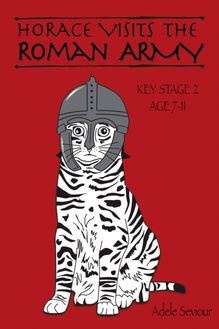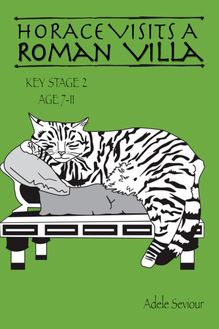-
 Univers
Univers
-
 Ebooks
Ebooks
-
 Livres audio
Livres audio
-
 Presse
Presse
-
 Podcasts
Podcasts
-
 BD
BD
-
 Documents
Documents
-
- Cours
- Révisions
- Ressources pédagogiques
- Sciences de l’éducation
- Manuels scolaires
- Langues
- Travaux de classe
- Annales de BEP
- Etudes supérieures
- Maternelle et primaire
- Fiches de lecture
- Orientation scolaire
- Méthodologie
- Corrigés de devoir
- Annales d’examens et concours
- Annales du bac
- Annales du brevet
- Rapports de stage
La lecture à portée de main
Vous pourrez modifier la taille du texte de cet ouvrage
Découvre YouScribe en t'inscrivant gratuitement
Je m'inscrisDécouvre YouScribe en t'inscrivant gratuitement
Je m'inscrisEn savoir plus
Vous pourrez modifier la taille du texte de cet ouvrage
En savoir plus

Description
Sujets
Informations
| Publié par | Andrews UK |
| Date de parution | 03 novembre 2021 |
| Nombre de lectures | 0 |
| EAN13 | 9781910824917 |
| Langue | English |
| Poids de l'ouvrage | 2 Mo |
Informations légales : prix de location à la page 0,0500€. Cette information est donnée uniquement à titre indicatif conformément à la législation en vigueur.
Extrait
HORACE VISITS A ROMAN TOWN
KEY STAGE 2
AGE 7–11
Adele Seviour
Guinea Pig Education
2 Cobs Way
New Haw, Addlestone
Surrey
KT15 3AF
Tel: 01932 336553
Website: www.guineapigeducation.co.uk
Copyright © 2013 Guinea Pig Education
NO part of this publication may be reproduced, stored or copied for commercial purposes and profit without the prior written permission of the publishers.
Written by: Adele Seviour
Edited by: Sally and Amanda Jones
Graphic Design and Illustrations by: Annalisa Jones
2021 digital version converted and published by
Andrews UK Limited
www.andrewsuk.com
For
Rebecca, Joshua, Michelle, Kristina, Nicole, Fleur, Tyler and Harlyn
The tabby cat, with his pattern of dark markings, spots or stripes on a paler background, is the oldest known domestic cat – known to the Romans as felis catus. This time his magic whiskers whisk him away to a Roman town.
Horace lay in the sun wall. His tabby coat rippled like little grey and white waves on a pond. His whiskers began to twitch. They twitched a bit more. Was he ready for take off? He activated his i-collar. Horace was a magic cat. He was a time traveller.
The noise of a cart, rumbling down the street, woke Horace up and he opened his big, round eyes. Where was he? He was in a busy place. All around him people were chattering. As he padded down the path, he felt the swish of togas and heard the flip flop sound of sandals close to him. He joined the people who were walking. But where were they going? They were walking towards the forum and the cries of traders selling their goods.
a toga – a white robe worn over a tunic
a forum – a market square
Horace looked all around him curiously. This must be market day he observed. It must be Saturday. He saw that the market square was full of stalls. Each one had a canvas awning to protect the produce from the burning sun.
Now he looked about the square. It had huge columns, but the lower levels of the brick houses were workrooms... or were they shops? They had counters at the front. There were goods displayed on hooks and poles so you could see what was for sale.
i-collar fact
column – a round pillar
awning – a covering to shelter from the sun
A slave bent down to stroke Horace. In his hand was a shopping list. It said he needed to buy:
bread (panis)
vegetables (holeris)
meat (caro)
Horace followed him to the baker’s stall. There were a huge variety of delicious breads; a bread mixed with cream cheese (athletoe); a wheat bread (emmer) and biscuits that soldiers ate, called (buccellatum).
The slave bought some bread made from emmer wheat, for his master, but then he said,
“Please can I also have some bread made with course bran and a little flour for me and my other slaves, (autopyron).”
Horace concluded that slaves did the everyday shopping.
The smell of delicious food made Horace feel hungry. Mouthwatering aromas wafted towards his nose. He thought he might get a take away, but surely they didn’t have take aways in Roman times. Horace soon found out that they did. In fact the take away food shop (thermopolia) was doing a roaring trade.
Horace observed that the blocks of flats, called (insula) had no kitchens to cook food. The people were bringing jugs to fill up with spiced wine and pots to fill with stews, beans, lentils, bread and even porridge. The taverns sold hot, cheap food all day.
But what was that familiar smell? He could smell his favourite food from home. Horace followed the scent and it led him to the fish stall. Yum, yum! What was on the menu today? It was oysters, all the way from Colchester. They have come a long way Horace’s i-collar explained. Packed in iced water, they travelled to Rome on the back of mules from Colchester. Horace mewed loudly because he wanted one. The fishmonger saw Horace and threw him a morsel of fish to try. Yuk! It was dried and salted. It was so disgusting he spat it out.
i-collar fact
oyster – a shellfish
Garum sauce – was made from fermented fish and sold in little pots. This fish sauce had a powerful flavour that probably helped to disguise the taste of fish or meat that was often not fresh.
Horace followed another scent. It led him to the butcher’s shop, where there were joints of meat hanging from a rail. A slave was waiting for his order, as the butcher weighed it out on the scales.
There was a huge variety of meat: pigeons, doves, thrushes and partridges. There were also mice, lamb, goat, wild boar, hares, venison and suckling pig. He mewed loudly to ask the butcher for some food, but a feather ticked Horace’s nose and he let out a huge sneeze.
“shoo”, said the butcher.
Horace saw some rich people in front of him. He knew they were rich because the man was wearing a white toga and his wife was wearing a deep blue stolla. He also knew they were rich because rich people only went shopping to buy expensive goods or new slaves. These people were in a furniture shop. They were looking for a new wooden bed and it was highly decorated in gold and turquoise patterns. There was a wicker chair in the shop with a high back, called a (cathedra), and an ornate table with a marble top.
A craftsman was busy working in the shop. He was making a strong box. It had many keys to lock things up. Was this the answer to Roman security, a system to stop thieves stealing?
All of a sudden, Horrace felt a bit drowsy. He jumped up onto a stall (a scamnum) and curled up tightly for a nap... but he was soon woken up.
“Four thousand denarius,” shouted someone loudly. Horace opened one eye. He arched his back, stretched out his two front paws and jumped lightly down. He would investigate. A man was standing on a raised platform in the middle of the market square. A slave man was for sale. Horace couldn’t believe his eyes. There were two rich Romans bidding to buy him, because they wanted him as a teacher for their children. The auctioneer was pushing the price up and up.
“See how healthy he is,” he said, “look what good white teeth he has got,” he added, “and there’s a bonus... he even speaks Greek,” he continued. Horace concluded that he must be telling the truth or he would get into trouble with the market inspector. “Seven thousand, eight thousand... SOLD, to the man on the right. Sold to Dionysius.”
To Horace’s horror yet more men stepped onto the platform. These men were prisoners of war, who had been kidnapped by Roman pirates. Now the trader continued,
“We have here a fine body of men suitable for hard work,” he called. Horace could see the fear on their faces, as they contemplated whether they would go to a good or bad home. The auction began.
“One thousand denarius...” shouted one.
“One thousand, five hundred...” shrieked another.
“Sold to the man on the left.”
i-collar fact
money – 16 donkeys were worth one denarius.
Horace wondered over to the next stall, when bang, wallop, something hit him full on the head,
“Ouch!” he mewed as the apple rolled away, but where had it come from? Horace stood back and gaped at the beautiful stall in front of him.
-
 Univers
Univers
-
 Ebooks
Ebooks
-
 Livres audio
Livres audio
-
 Presse
Presse
-
 Podcasts
Podcasts
-
 BD
BD
-
 Documents
Documents
-
Jeunesse
-
Littérature
-
Ressources professionnelles
-
Santé et bien-être
-
Savoirs
-
Education
-
Loisirs et hobbies
-
Art, musique et cinéma
-
Actualité et débat de société
-
Jeunesse
-
Littérature
-
Ressources professionnelles
-
Santé et bien-être
-
Savoirs
-
Education
-
Loisirs et hobbies
-
Art, musique et cinéma
-
Actualité et débat de société
-
Actualités
-
Lifestyle
-
Presse jeunesse
-
Presse professionnelle
-
Pratique
-
Presse sportive
-
Presse internationale
-
Culture & Médias
-
Action et Aventures
-
Science-fiction et Fantasy
-
Société
-
Jeunesse
-
Littérature
-
Ressources professionnelles
-
Santé et bien-être
-
Savoirs
-
Education
-
Loisirs et hobbies
-
Art, musique et cinéma
-
Actualité et débat de société
- Cours
- Révisions
- Ressources pédagogiques
- Sciences de l’éducation
- Manuels scolaires
- Langues
- Travaux de classe
- Annales de BEP
- Etudes supérieures
- Maternelle et primaire
- Fiches de lecture
- Orientation scolaire
- Méthodologie
- Corrigés de devoir
- Annales d’examens et concours
- Annales du bac
- Annales du brevet
- Rapports de stage








